Unique Logistics Solutions to Complex Container Drayage Issues
Today, more than 80% of global shipping involves containers. They're packed with everything from personal storage items in dry containers to heavy machinery on flat rack containers. For business owners shipping products, getting a container from point A to point B requires precise planning and high-level tracking. But that's easier said than done when global supply chains become over-congested, leading to loading time issues and delays.
That's bad news for business owners who are already under a massive amount of stress. The truth is that container storage delays can cripple a business, but there's a viable solution: drayage brokers in Mesa, AZ like RelyEx. Drayage companies provide unique solutions to minimize demurrage and help ensure the successful delivery of your freight.
With more than 30 combined years of experience and a solutions-oriented team, RelyEx has quickly become the first choice for streamlined, efficient drayage services. To understand the true value of RelyEx's offerings in the global logistics industry, it helps to understand first what drayage is and why it's used.
What is Drayage and Why Is It Important?
If you're a seasoned business owner who uses port drayage to transport your products, you know exactly how important the service can be. But if you were to poll a group of random people, you may get five different definitions of the term "drayage." That begs the question, how is one of the most crucial steps in the supply chain and most vital components of global trade such a confusing concept? When you break it down, it's not too difficult to grasp.
Drayage, by definition, means the transportation of freight from an ocean port to another destination. Today, drayage is also used to describe the process of transporting products and goods over short distances or over "the first mile."
While drayage often means short-distance movements during the supply chain process, it's primarily used in the container shipping space. Drayage loads usually have arrival and departure points in the same city and don't include long-haul, national transportation.
Let us know how we can help.
drayage broker Services
Service Areas
Because a drayage load can mean a few different things, confusion among carriers is common. Many carriers link drayage with going into a port, but that isn't always true. While all drayage loads typically originate from a port of entry, there are often several legs of a drayage journey before a container turns up at its final stop. Legs of a drayage load may include:
Why Are Drayage Companies in Mesa, AZ So Important?
You may be thinking, what's so important about drayage? It's such a small step in the container storage transport process. In reality, it's an integral piece needed in the logistics industry and a crucial part of U.S. supply chain management.
To truly understand the importance of drayage, let's use flowers as an example. Most cut flower shipments enter the market from areas in South America until they end up at Dutch auction houses. Once there, wholesalers purchase flowers in bulk and send those products to retail outlets worldwide. Because flowers are perishable, they typically need to be refrigerated and are often shipped in reefer containers. These refrigerated vessels must maintain a certain temp to prevent loss.
Drayage companies like RelyEx allow flower shippers to send their products from Argentinian ports to airports in the Netherlands with peace of mind because their products are protected. The only way to accomplish this feat is with the help of swift, meticulous port drayage services. Drayage companies allow flower shippers to send their products from Argentinian ports to airports in the Netherlands with peace of mind, because their products are protected. The only way to accomplish this feat is with the help of swift, meticulous port drayage services.
If port drayage is compromised, it can cause delays and even fines. You know the packages you get delivered to your front door from apps like Amazon? Without drayage and drayage brokers, one or two-day shipping times wouldn't even be possible.
As a multi-billion-dollar industry in the U.S. alone, it seems like drayage shipping issues shouldn't exist. But the fact is inefficiencies and congestion are still major problems at ports. Whether it's a lack of carriers, absent chassis, or overburdened terminals, delays lead to missed deadlines, lost revenue, and worse.
But anytime challenges exist, so too do innovative solutions.
QUOTE REQUEST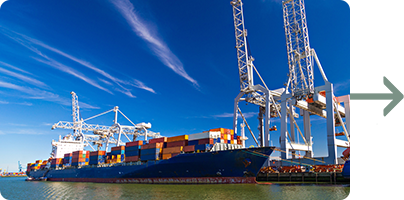
Port
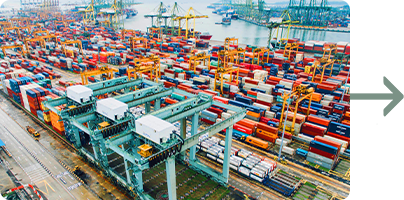
Yard
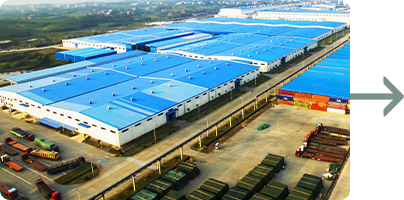
Warehouse
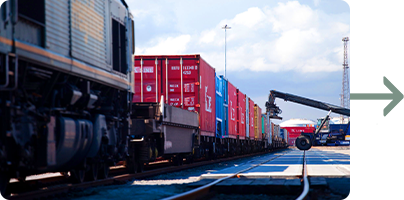
Rail
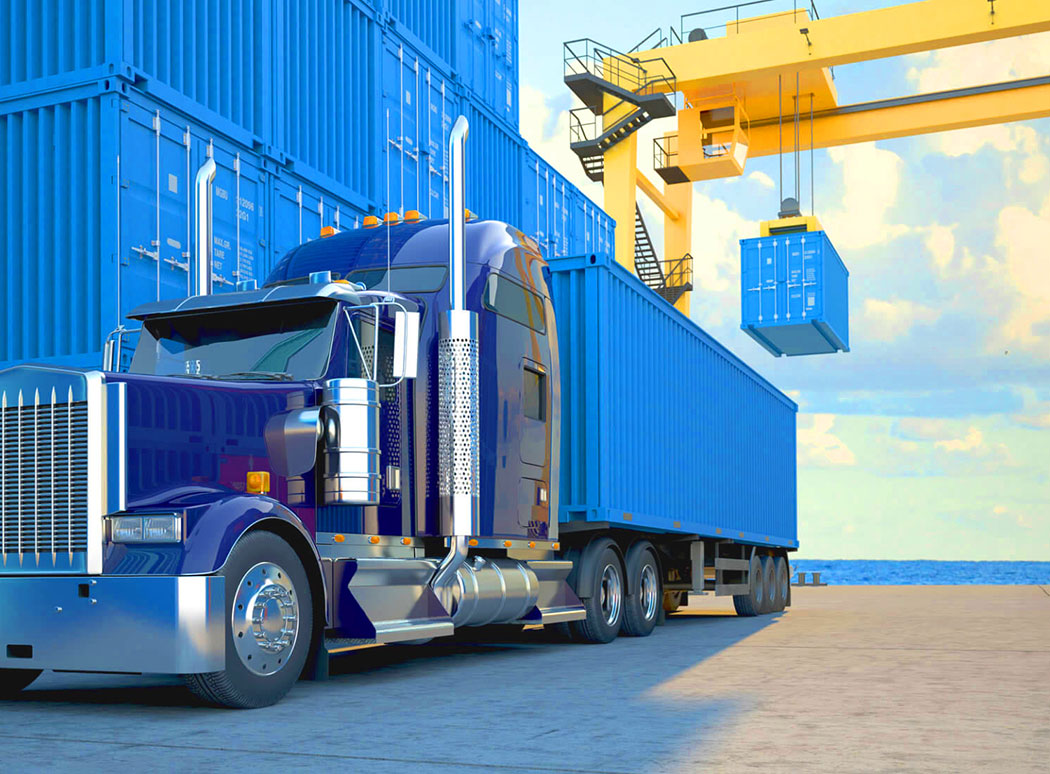
The RelyEx Difference
RelyEx was created because our founders saw a need in the logistics space for more reliability and efficiency. The reality of the shipping and logistics industry is that it has become very transactional. It's an odd evolution, because most businesses seek a third-party logistics partner that is accessible, transparent, and committed to providing solutions.
As the logistics space continues to grow, it creates newfound expenses and complexities. Clients like ours know that and need a supply chain partner who is genuinely interested in their business. By understanding the needs of our customers and carriers, we can provide the most reliable, effective drayage services possible.
Unlike some drayage companies in Mesa, AZ, we begin managing your containers before they ever hit the ports by mapping out the most efficient pathways of delivery. That way, our team can discover the best drayage pathways to expedite delivery time and reduce fees that cut into profits.
Our valued drayage customers choose RelyEx because:

RelyEx Solves Problems
At RelyEx, we like to consider ourselves problem solvers. The nature of the container drayage industry presents new challenges every day, but we're firm believers that there's a solution to every hurdle we encounter. And while some drayage businesses implement a reactive approach, RelyEx customers choose us for our proactive mindset. We take pride in solving your company's drayage challenges to help you avoid frustrating fees, missed expectations, and delayed shipments. We strive to make every transaction successful and streamlined by partnering with shippers who prioritize transparent, prompt, and accurate communication.
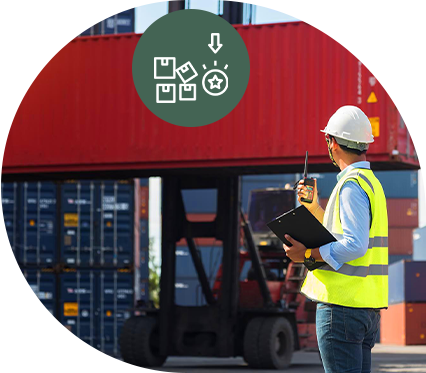
RelyEx Has a Unique Vantage Point
RelyEx approaches your business from the customer's perspective - a unique approach that helps us provide high-quality, effective drayage services. We've been in the customers' shoes, know their pain points, and because of that, provide first-hand solutions to stressful supply chain issues. With over 30 years of collective knowledge, our team excels in:
- Inventory Management
- Logistics
- Purchasing
- Finance
Our varied, high-level drayage shipping experience helps us achieve our overarching goal: expertly managing your freight movement needs. That way, you can direct your time and focus on growing the core aspects of your business while we handle the heavy lifting. Throw in proactive planning to avoid bottleneck situations and strong communication for transparent customer relations, and you can see why so many companies trust RelyEx.

RelyEx Nurtures Strong Carrier Relationships
When it comes to shipping logistics, it only takes one mistake by a mediocre worker to disrupt your business. That's why, at RelyEx, we pride ourselves on forming and nurturing relationships with carriers who match our standards of care. Our founding partner started his career transporting freight for companies as an on-demand carrier. He uses that knowledge to maximize the resources of our carriers so that our customer's expectations aren't just met - they're exceeded.
Why Choose RelyEx as Your
Drayage Company in Mesa, AZ?
Based in the port city of Mesa, RelyEx has a keen understanding of the challenges of managing the inbound and outbound flow of containers. Our team of container drayage experts provides your business with unique solutions to nuanced shipping problems, minimizing demurrage and ensuring the successful delivery of your freight.

Customers choose RelyEx because:
- We are a reliable drayage logistics partner that manages your freight from beginning to end
- We have a rare industry vantage point with 30+ years of client-side experience
- We foster and fortify the strongest vendor relations
- We take a proactive approach to problem-solving, not a reactive approach
Let us know how we can help.
 843-885-3082
843-885-3082

Your Drayage Shipments Managed from Start to Finish
Some drayage brokers don't care how customers feel about their service as long as they sign a contract and get paid. As a solutions-oriented team, RelyEx takes the opposite approach. We're motivated by the opportunity to overachieve for our customers and to provide them with the best logistics experience possible. With professional experience as carriers and shippers ourselves, we know the roadblocks and challenges you're facing. We excel at mapping out the best plans of action to solve those problems. But that's just the start.
Our tracking experts monitor and manage every aspect of your drayage shipment from booking to delivery, 24/7. Once booked, we look for the availability of your containers hourly once they're at port. When they arrive, our team acts quickly to access your storage containers when they're available.
Plus, RelyEx ensures your company's requirements are met by the carrier during loading and delivery and provide necessary documentation as fast as possible. With real-time tracking updates and access to our customer service professionals, your team has complete visibility throughout the shipping process.
We Source Top-Notch Operators at the Best Prices
Over the years, RelyEx has built a strong network of drayage carriers, transloading locations, and container storage spaces to provide you with the best possible options to match your drayage service needs. We know that searching for quality service presents an added layer of complexity and stress to our customers. That's why we work hard to take that off your plate by connecting you with our reliable shipping partners.
With a background moving freight as an on-demand carrier, our founding partner understands how to maximize the resources and equipment of our carriers to match your needs.
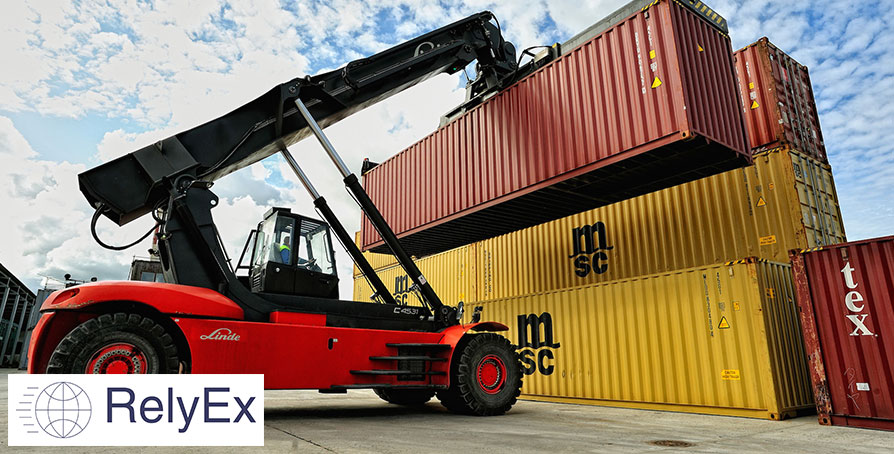

We Make Transparent, Timely Communication a Priority
Like other industries, the global logistics space is complex. Mistakes will be made, and problems will happen. With those truths in mind, RelyEx has built its reputation as problem solvers. Unlike other drayage companies, we don't shy away from this industry's complexities because we take pride in solving problems. Even better, we aim to do what's needed to avoid those problems altogether.
As your logistics partner, we will provide your company with accurate, transparent, and prompt communication. If there are unexpected issues, we'll notify you immediately and will provide several options to remedy the problem. We even offer custom reporting for large clients who need at-the-moment updates and quick access to shipment documentation.
We Have Robust Project Management Experience
Why let the unpredictability of your industry dictate your success? With a background working in manufacturing, our founders are familiar with the demands of managing production schedules and sales orders. That experience makes it abundantly clear to us that every business and industry is different. If you struggle with seasonal surges or other factors, our team supports your business with a mapped-out plan and schedule, so you stay ahead of the game.
QUOTE REQUEST
How to Avoid
Demurrage Fees for Your Business
Based in the port city of Mesa, RelyEx has a keen understanding of the challenges of managing the inbound and outbound flow of containers. Our team of container drayage experts provides your business with unique solutions to nuanced shipping problems, minimizing demurrage and ensuring the successful delivery of your freight.
What is shipping demurrage?
Demurrage is a charge issued by a port, carrier, or railroad company for storing containers that do not load and unload their cargo promptly. Once the daily limit of free time is exceeded, shippers are charged daily demurrage fees until their cargo is shipped. Though different ports have different policies, charges can range from $75 to $150 per container, per day, for a set number of days. Additional demurrage fees are incurred if a shipper exceeds the port's parameters.

What causes demurrage charges?
Even when shippers maintain a tight schedule for unloading freight, external factors can play an uncontrollable part. Typically, shipping mistakes caused by human error trigger the most demurrage charges. Some of the most common causes of demurrage include:
- Paperwork Errors
- Payment Delays
- Documents Received Too Late

Paperwork Errors
Typically, shippers need four specific documents to clear shipments through customs: A Bill of Lading (or BOL), a commercial invoice, a packing list, and an arrival notice. Seasoned drayage brokers like RelyEx are used to preparing these documents, but new shippers tend to miss this step due to inexperience.
Payment Delays
If a shipper only pays for part of their shipment, a vessel operator may refuse to release their freight until their bill is fully paid. Payment delays lead to cargo detention at the port of entry, which triggers demurrage charges.
QUOTE REQUESTDocuments Received Too Late
Paperwork is needed when you're shipping goods with a drayage company. When documents like the Certificate of Origin or Bill of Lading arrive at their destination late, you can expect demurrage fees. RelyEx avoids this situation entirely by being proactive when submitting paperwork.
Additional causes for demurrage fees can include:
- Damaged Container Storage
- Custom Released Containers
- Storage Containers Are Too Heavy
Free Consultation
RelyEx:
The Supply Chain Partner You Can Count On
At RelyEx, we know first-hand how stressful supply chain problems can be for business owners. Though drayage shipping might seem minor on the surface, it affects every stage of your shipping process. And when inevitable hurdles manifest, RelyEx propels you over the proverbial roadblocks with a proactive mindset and a passion for challenging projects. We believe that all problems have a solution, and our unique vantage point allows us to provide first-hand solutions to customers in a wide array of industries.
When it comes to your business, don't settle for anything less than RelyEx. Contact our office today to learn more about how we make your shipping experience streamlined and stress-free.
 843-885-3082
843-885-3082
Latest News in Mesa, AZ
Mesa Encourages Efficient Watering Habits Amid Rising Temperatures, Offers Incentives for Drought-Friendly Landscapes
Aisha Khanhttps://hoodline.com/2024/05/mesa-encourages-efficient-watering-habits-amid-rising-temperatures-offers-incentives-for-drought-friendly-landscapes/
As the mercury rises in May, Mesa residents are reminded to adjust their watering habits to keep their gardens thriving without wasting precious H2O. The season's spike in temperature - back into the low- to mid-90s - coupled with low humidity and windy days, quickly saps moisture from both soil and flora. The city's official bulletin advises folks to give their plants a good drink of water, especially during a breezy day, while ca...
As the mercury rises in May, Mesa residents are reminded to adjust their watering habits to keep their gardens thriving without wasting precious H2O. The season's spike in temperature - back into the low- to mid-90s - coupled with low humidity and windy days, quickly saps moisture from both soil and flora. The city's official bulletin advises folks to give their plants a good drink of water, especially during a breezy day, while cautioning against using sprinklers during gusty periods to avoid unnecessary water loss.
According to guidance aiming to prevent residents from over or under-watering, grass varieties like Bermuda should be watered once every four to five days, while overseeded cool season grass needs hydration once every three days. The city also offers a vital incentive program, providing up to $1,100 for homeowners ready to swap grass for desert landscapes, which is part of their initiative to conserve water in the face of rising temperatures and prolonged drought conditions.
In what could be seen as a green revolution for commercial enterprises, Mesa announced an incentive of up to $70,000 to aid businesses in replacing their grass with xeriscapes, thanks to a recent grant. In a list that reads like the roster of a horticultural heavyweight match, the city detailed watering schedules for trees, shrubs, cacti, and even the blooming Foothills Palo Verdes. For the uninitiated, landscaping tips from the likes of AZ Plant Lady—aka Noelle Johnson—are featured in a series of informative videos on efficient water usage available on the city's website.
A mid-May announcement highlights the importance of proper watering techniques and commends the beneficial shade provided by trees. Every desert dweller has experienced how much cooler it feels on a hot day when standing in the shade of a tree rather than in the full sun, the city's blog states, promoting the 'Trees Are Cool' initiative. Furthermore, residents are encouraged to conduct a simple sprinkler test to ensure they are not drowning their lawns in their effort to keep them green.
The city doesn't stop at lawncare; the practical advice extends to pool maintenance as well, urging pool owners to check for leaks and offering pointers on keeping water where it belongs. Residents inclined to jump into the pool during the scorching heat can find these tips along with other water conservation strategies on Mesa's website. These tips and guidelines aim to slash landscape water usage by 30 to 50 percent, making it clear that, even in dry land, responsible stewardship of water can flourish.
Mesa Homeowners Advised by City to Inspect and Maintain Their Own Gas Lines Beyond the Meter
Kim Tran Publishedhttps://hoodline.com/2024/05/mesa-homeowners-advised-by-city-to-inspect-and-maintain-their-own-gas-lines-beyond-the-meter/
Phoenix/ Community & SocietyMany homeowners may be unaware that the gas lines they rely on for cooking and heating are actually their responsibility once they cross a certain threshold. As detailed by the City of Mesa, the municipality only maintains th...
Many homeowners may be unaware that the gas lines they rely on for cooking and heating are actually their responsibility once they cross a certain threshold. As detailed by the City of Mesa, the municipality only maintains the gas piping up until the meter, which typically sits just outside a residence or business establishment. From that meter onwards, all the gas pipelines that snake their way to appliances both inside and outside are under the property owner's jurisdiction. This setup means that the onus falls on the homeowner to ensure these lines are in safe working order.
Considering the potential hazards, it's critical that these pipelines are regularly inspected for leaks, corrosion, and the insidious creep of rust, which can undermine the integrity of the gas supply and pose serious risks. The municipal guidance suggests, much like with other home systems, that vigilance and proactive maintenance are key. Despite the pipes being buried out of sight, they should never be out of mind—especially since, as discovered through an announcement on the City of Mesa's website, many homeowners are often not cognizant of these underground responsibilities.
Any hint of an unsafe condition with the gas piping should prompt homeowners to enlist the help of a licensed professional. Beyond mere suggestions, this is about safety, as even a small oversight could lead to significant dangers. The Mesa advisory is emphatic about this reality: "If you suspect an unsafe condition and need repairs," they state, homeowners should not hesitate to get expert assistance.
And it’s not only about passive checks; Mesa officials stress that any excavation, no matter how small, should be preceded by a call to Arizona 811. This simple act can prevent accidental damage to subterranean utilities, which not only protects the individual doing the digging but also safeguards the community's infrastructure. After calling Arizona 811, the safe practice is to proceed with caution, ensuring the use of hand tools when navigating the vicinity of buried piping—advice that aims to protect more than just the gas lines themselves. Learn more about these necessary precautions on Mesa's official website.
Maricopa County Bolsters Heat Relief Efforts with Extended Cooling Center Hours in Phoenix, Mesa
Kim Tranhttps://hoodline.com/2024/05/maricopa-county-bolsters-heat-relief-efforts-with-extended-cooling-center-hours-in-phoenix-mesa/
Maricopa County Department of Public Health is beefing up its heat relief campaign for the coming summer months, pushing to prevent the rise of heat-related casualties that have hit record numbers in recent years.With a cash infusion from the American Rescue Plan, initiated by the Maricopa County Board of Supervisors, vital cooling centers across the region will see expanded hours, including weekends, to offer a reprieve from the sweltering Arizona heat, ...
Maricopa County Department of Public Health is beefing up its heat relief campaign for the coming summer months, pushing to prevent the rise of heat-related casualties that have hit record numbers in recent years.
With a cash infusion from the American Rescue Plan, initiated by the Maricopa County Board of Supervisors, vital cooling centers across the region will see expanded hours, including weekends, to offer a reprieve from the sweltering Arizona heat, according to the Maricopa County announcement. “The number one thing we learned from our cooling center assessment in 2023 is that people need cooling centers to be open longer and on weekends. The other important piece we learned is that people need help finding cooling centers and other heat relief resources,” Dr. Rebecca Sunenshine, the medical director for MCDPH stated, acknowledging the gaps in the existing heat relief efforts.
Building on these insights, MCDPH has put together a detailed plan to extend support for the community. This includes forging Intergovernmental Agreements (IGAs) with cities like Phoenix and Mesa, ensuring at least one facility in each will stay open until 7 p.m. on weekdays and be available at least one weekend day. These centers give citizens a chance to cool down, and some also offer respite services where individuals can rest undisturbed.
Moreover, MCDPH has partnered with the AZ 2-1-1 call center, where community health workers, known as promotoras, are available from 9 a.m. to 7 p.m. daily to guide residents in both English and Spanish to nearby facilities, water distribution, and aid like utility assistance or A/C repair services. This initiative aims to streamline access to support for those beaten down by the heat, especially for vulnerable populations such as the elderly, people with medical conditions the homeless, and drug users, who stand at a higher risk.
Since 2016, records show each year has seen a grim new milestone in heat-related deaths in Maricopa County. Breaking this streak is a community-wide initiative, as Dr. Sunenshine puts it. “Preventing heat deaths comes down to three things: know your risk, protect yourself, and protect others.” Information on the risks, how to stay safe, and how to help others are widely promoted, including urging locals to check on neighbors, stay indoors at peak hours, and donate to the Heat Relief Network.
More details on the symptoms of heat illnesses, protective measures, and available services can be found on Maricopa County's official website, where residents and visitors are also directed to a map of heat relief centers and information on how to contribute supplies to those in need.
Maricopa County ramps up heat-relief effort after deadliest summer
The Daily Independent at YourValley.nethttps://yourvalley.net/mesa-independent/stories/maricopa-county-ramps-up-heat-relief-effort-after-deadliest-summer,507812
The summer of 2023 was the deadliest in Maricopa County since tracking fatalities began, and public health officials are expanding the region's heat response effort beginning May 1.The Maricopa Association of Governments launched the Maricopa County Heat Relief Network in 2005 bringing together public, private and nonprofit volunteer organizations with the goal of limiting the number of heat-related deaths.This year, in part due to an investment of American Rescue Plan funds by the Maricopa County Board of Supervisors, the Mari...
The summer of 2023 was the deadliest in Maricopa County since tracking fatalities began, and public health officials are expanding the region's heat response effort beginning May 1.
The Maricopa Association of Governments launched the Maricopa County Heat Relief Network in 2005 bringing together public, private and nonprofit volunteer organizations with the goal of limiting the number of heat-related deaths.
This year, in part due to an investment of American Rescue Plan funds by the Maricopa County Board of Supervisors, the Maricopa County Department of Public Health is coordinating cooling and respite centers throughout the county along with ensuring that residents know how to access these centers, according to a release.
“The number one thing we learned from our cooling center assessment in 2023 is that people need cooling centers to be open longer and on weekends. The other important piece we learned is that people need help finding cooling centers and other heat-relief resources,” Dr. Rebecca Sunenshine, medical director for MCDPH, said.
“With this in mind, our team has been working tirelessly all winter with our heat relief partners to refine our current heat relief system’s hours of operation and ensure that we have a system in place for people to find these resources.”
In response to the assessment, MCDPH has developed a plan that includes:
Every year since 2016, Maricopa County has set a record in the number of heat-related deaths confirmed.
“The bottom line is that we know all of these deaths can be prevented, and it is going to take every one of us in Maricopa County to do our part,” Sunenshine said. “Preventing heat deaths comes down to three things: know your risk, protect yourself and protect others.”
For more on heat illnesses, prevention tips and data: Maricopa.gov/heat.
For the map of heat relief centers and to find out where to donate supplies: https://azmag.gov/heatrelief.
We’d like to invite our readers to submit their civil comments on this issue. Email AZOpinions@iniusa.org.
Mesa school using music to instill life lessons to students
12news.comhttps://www.12news.com/article/news/local/valley/las-sendas-mesa-school-string-instrument-program/75-3d832c1e-c497-4b73-b2fe-ab55c791eaf3
Las Sendas Elementary School in Mesa prides itself on introducing students to string instruments early on to provide them with life skills.More VideosMESA, Ariz. — Music and maturity tend to go hand in hand. Multiple reports show the positive impact music can have on child development and you don’t have to look far when it comes to a special program here in the Valley that’s devoted specifically to its students.Las Sendas Elementary School in Mesa prides itself on introducing students to string instru...
Las Sendas Elementary School in Mesa prides itself on introducing students to string instruments early on to provide them with life skills.
More Videos
MESA, Ariz. — Music and maturity tend to go hand in hand. Multiple reports show the positive impact music can have on child development and you don’t have to look far when it comes to a special program here in the Valley that’s devoted specifically to its students.
Las Sendas Elementary School in Mesa prides itself on introducing students to string instruments early on to provide them with life skills to carry well beyond the classroom.
Director of Orchestra Julie Willis is a longtime music teacher at the campus. She was emotional when talking to 12News about the impact of the PTO-funded program.
"These young students learn so many skills like discipline, fine motor skills, teamwork, they pay attention to small details and learn overall good work ethic," she explained.
Willis also said seeing her students find success makes everything worth it.
"The whole reason I became a teacher was to help students succeed with music and become great human beings and seeing them continue on is so rewarding and makes me happy," she said.
The program has been offered for the past 20 years and has introduced kids as young as 7 years old to instruments like the violin.
"It’s fun and the teachers help you learn how to be creative, and it is really fun," a few students shared.
Some sixth graders now mentor the younger classes, encouraging them to stay persistent. Willis added that thanks to the ongoing support of staff and parents, the students will continue to get first-hand experience with music, making their own decision to continue to the next level with it.
The rehearsal went well, and the students were excited to get the performances underway.
More details: https://lassendas.mpsaz.org/
>> Download the 12News app for the latest local breaking news straight to your phone.
Catch up on the latest news and stories on the 12News YouTube channel. Subscribe today.
Disclaimer:


